Imagine having an Artificial Intelligence button that can reveal what others truly think about you — would you press it?
This was the question posed to non-native speakers at the first Chinese Language Debate Tournament between international students from Duke Kunshan University and New York University Shanghai (NYUSH) held on the DKU campus.
Representing DKU in favor of pressing the button were Kim Hong-ki from South Korea, Kennedy McNeilly-Anta from Spain, Charles Liu from the United States and Lujia Liu Li from Chile.
The all-American NYU Shanghai team of Joy Cheng, Red Wertheimer, Alexandra Greer and Celine Xu argued against.
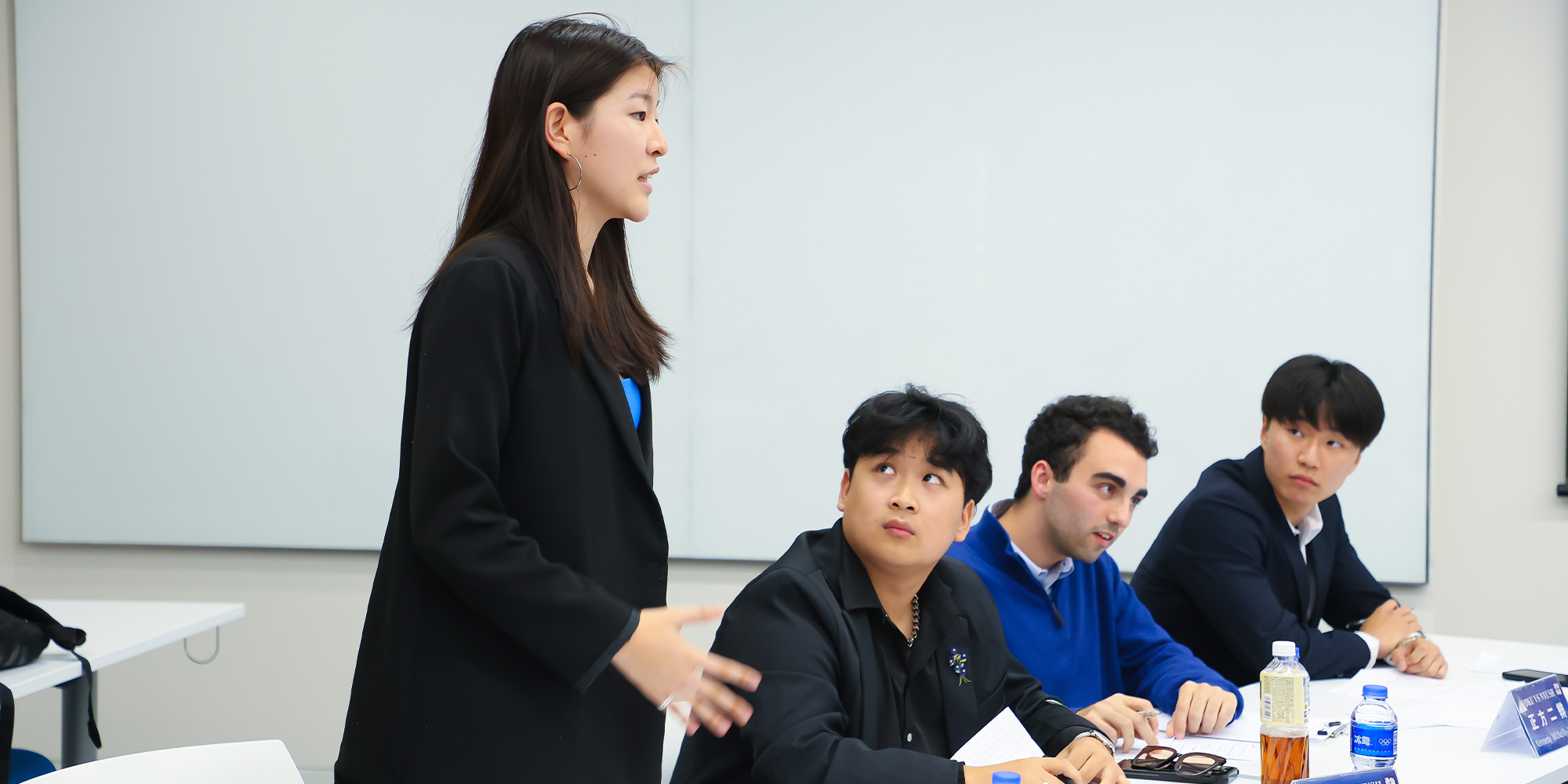
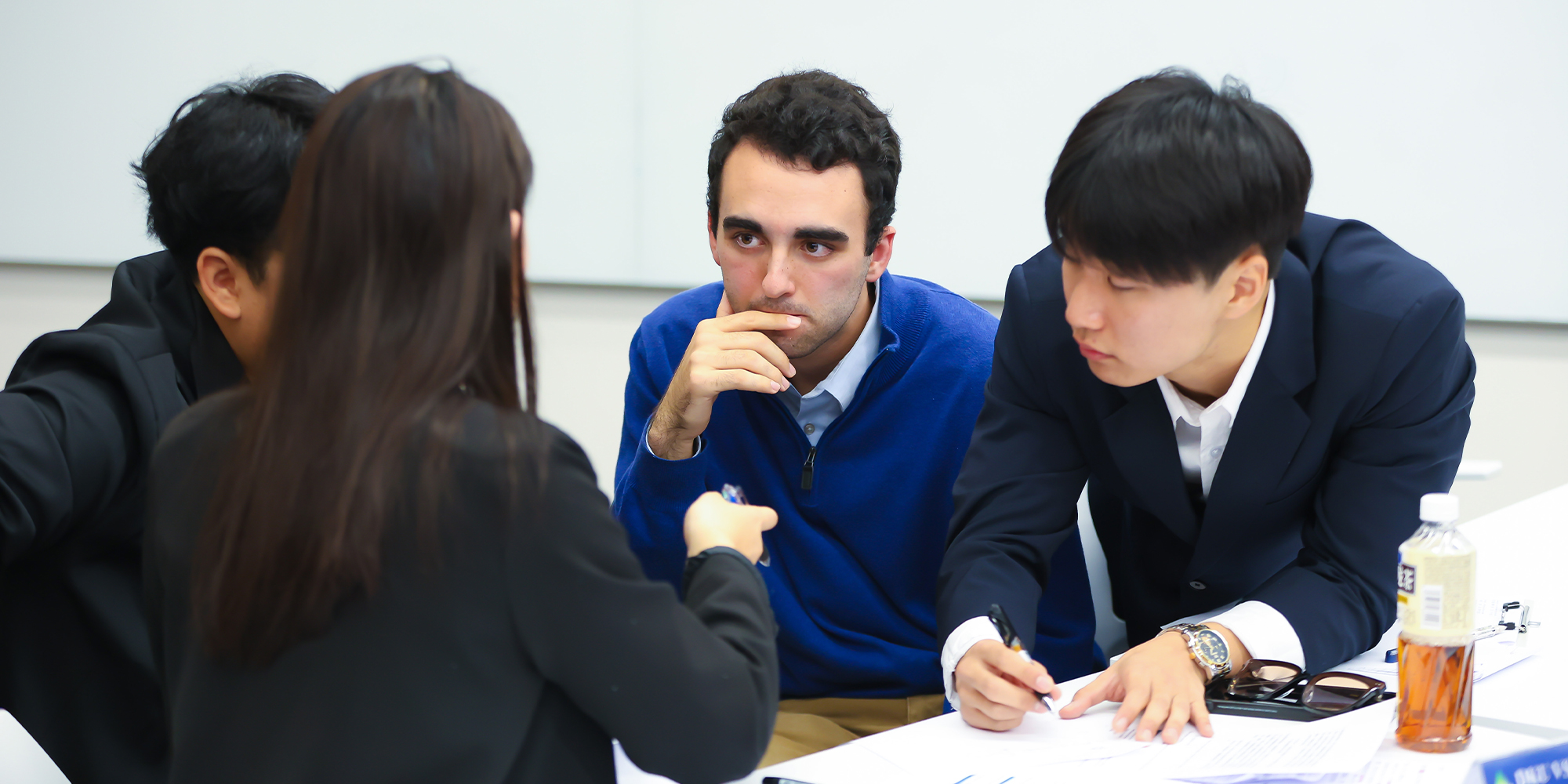
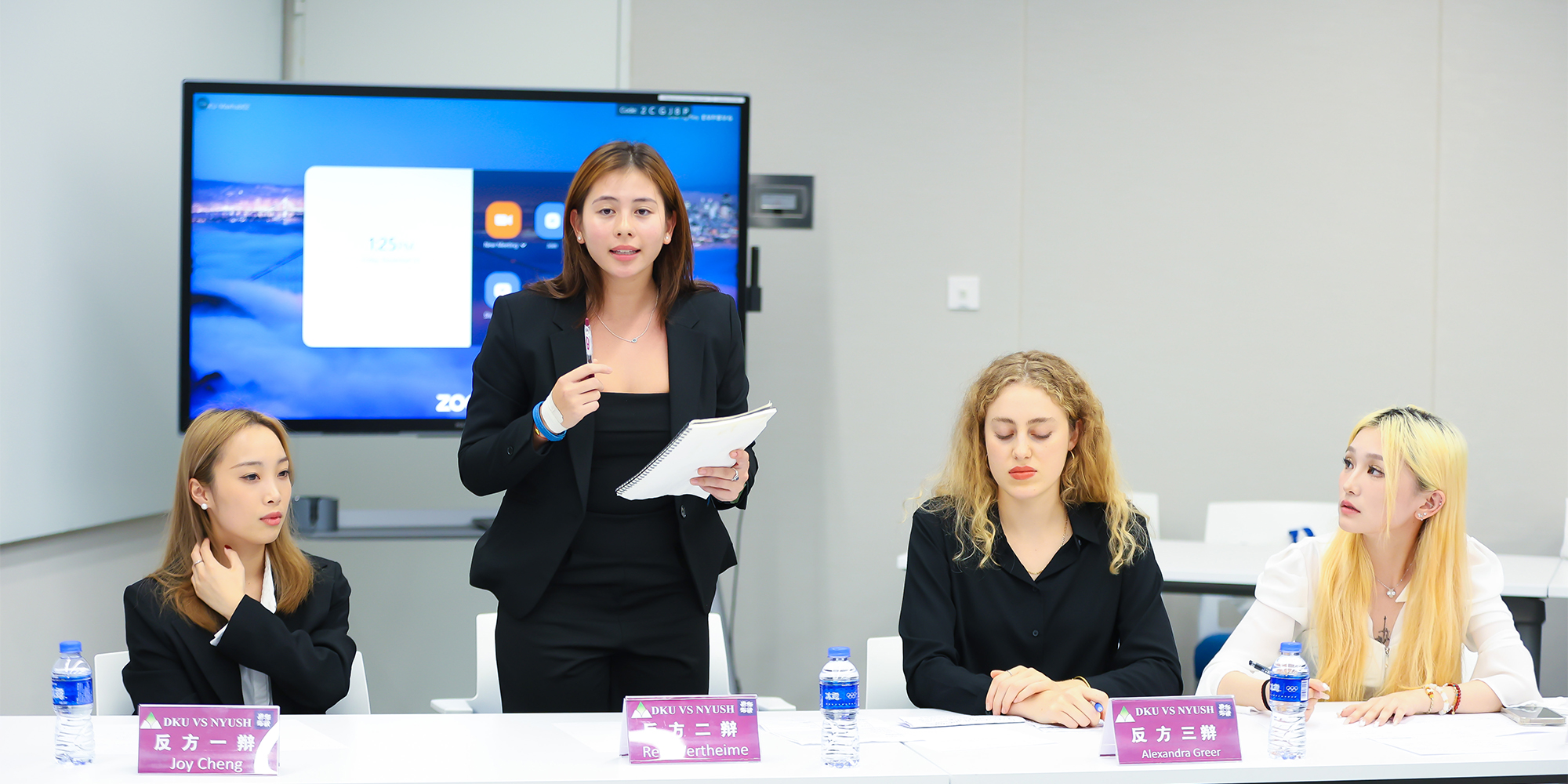
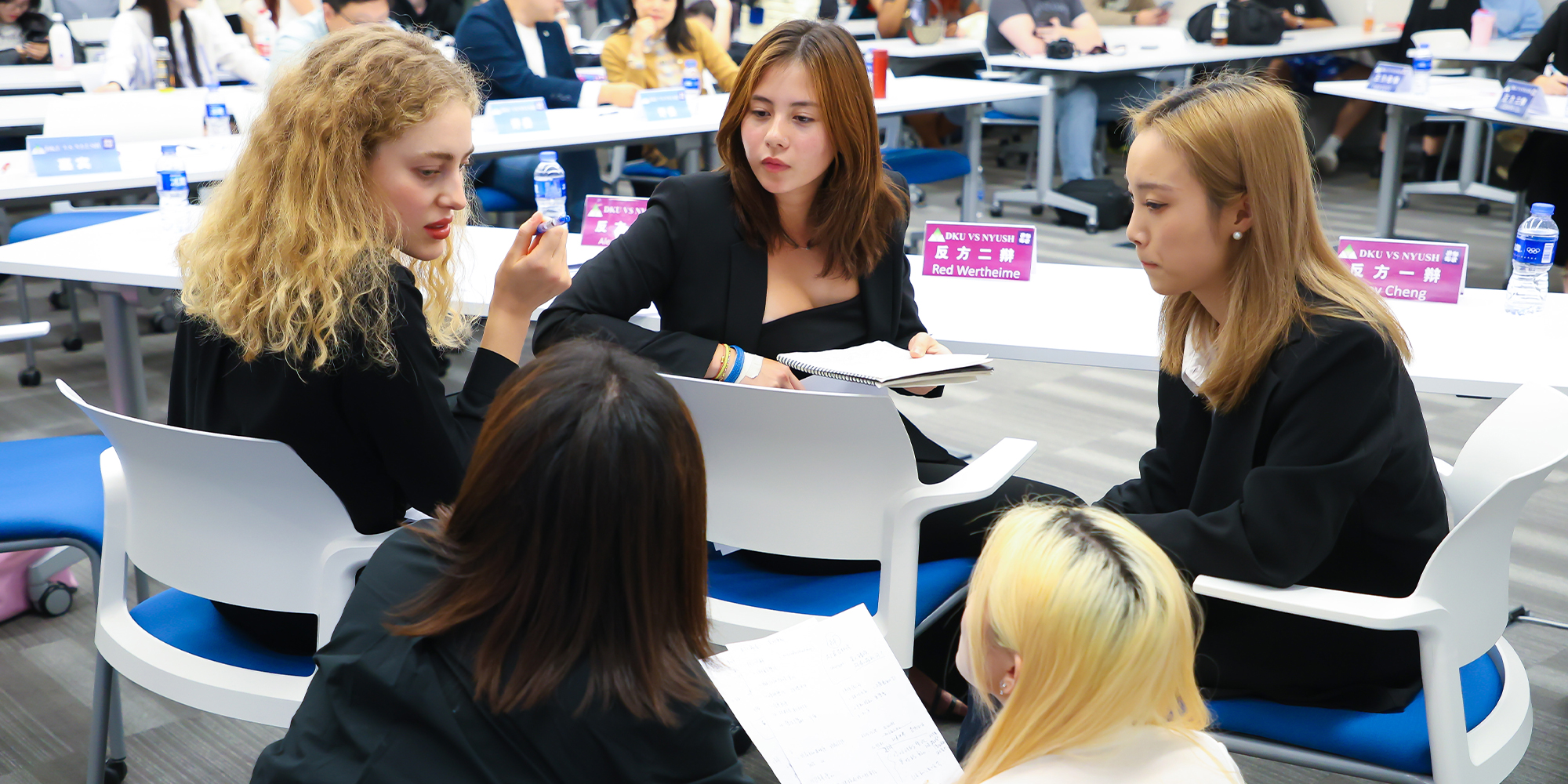
In a spirited exchange of ideas lasting an hour-and-a-half, DKU debaters positioned the AI button as a valuable tool that offered enhanced information and minimized misunderstandings. Conversely, the NYUSH team raised privacy concerns and warned of the button’s wider impact on humanity.
McNeilly-Anta from DKU and Xu from NYUSH were recognized as the best debaters. However, the competition chooses not to declare a team winner.
“This Chinese debate tournament doesn’t prioritize winning or losing but aims to establish a platform for Chinese ideas and cultural exchanges, while encouraging international students to learn Chinese and appreciate the charm of the Chinese language,” said tournament organizer Yili Zhang, a lecturer at the Language and Culture Center at Duke Kunshan.
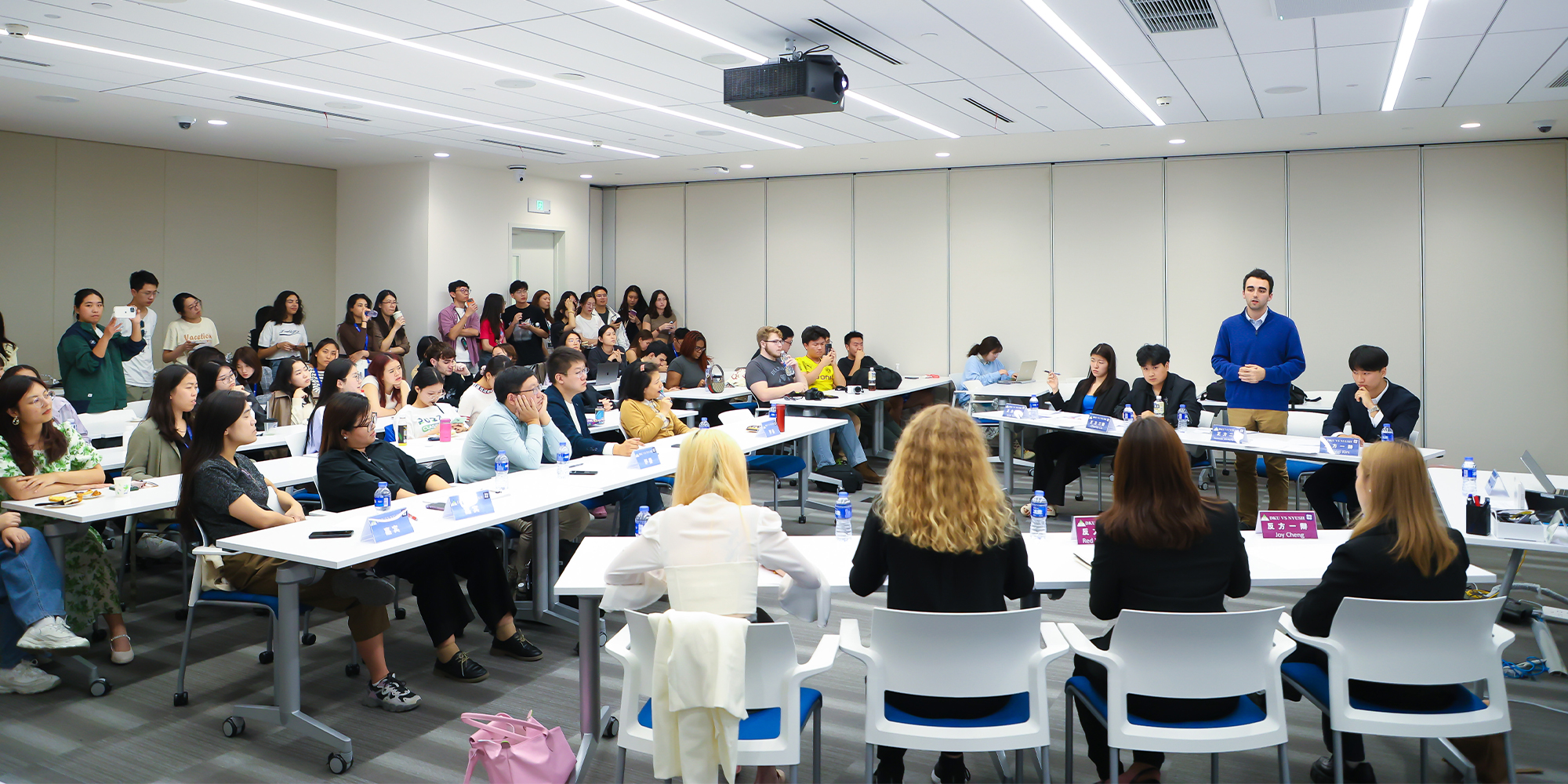
The judging panel comprised Yang Wu, a lawyer from Jiangsu Tongshui Law Firm, Cui Zongxiang, the head coach of Soochow University’s debate team, and Xia Xing from University Communications for NYUSH.
“Learning Chinese is more challenging compared to other languages, and starting is more difficult,” Wu said.
“As a language debate competition for non-native speakers, the eight debaters showcased profound thinking, listening, and discussion skills. Their overall language delivery was accurate and efficient.”
Zongxiang said, “Chinese debate presents challenges in understanding the topic deeply and organizing language in Chinese for an on-the-spot intense debate. The performance of these eight debaters exceeded our expectations, showcasing high language proficiency and critical thinking skills.”
Xing from NYUSH added, “The debate is not only a language contest but also a test of philosophical thinking. The pros and cons present different positions and perspectives, enabling the audience to comprehensively and rationally view issues and the world.”

